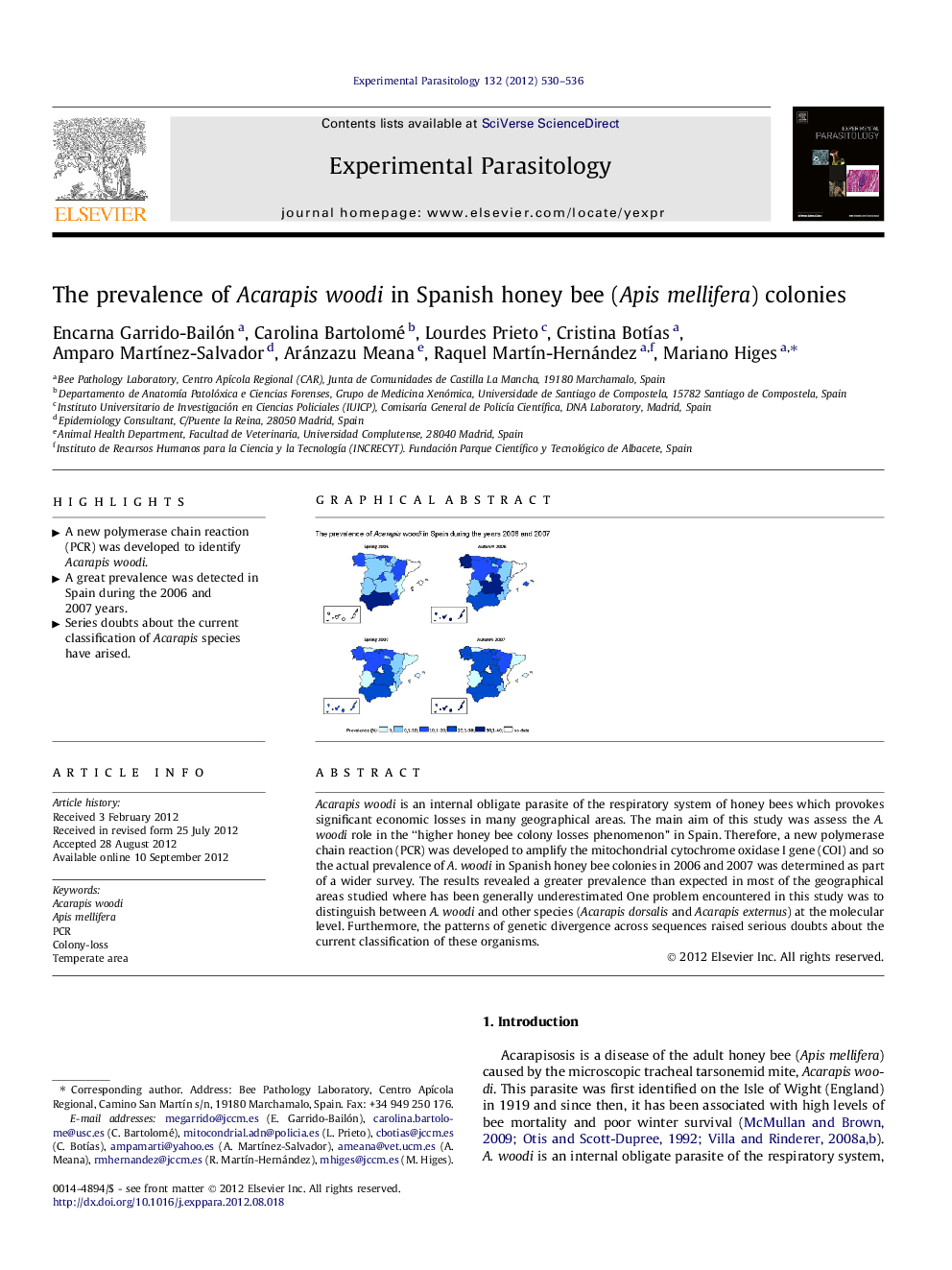| Article ID | Journal | Published Year | Pages | File Type |
|---|---|---|---|---|
| 6291478 | Experimental Parasitology | 2012 | 7 Pages |
Acarapis woodi is an internal obligate parasite of the respiratory system of honey bees which provokes significant economic losses in many geographical areas. The main aim of this study was assess the A. woodi role in the “higher honey bee colony losses phenomenon” in Spain. Therefore, a new polymerase chain reaction (PCR) was developed to amplify the mitochondrial cytochrome oxidase I gene (COI) and so the actual prevalence of A. woodi in Spanish honey bee colonies in 2006 and 2007 was determined as part of a wider survey. The results revealed a greater prevalence than expected in most of the geographical areas studied where has been generally underestimated One problem encountered in this study was to distinguish between A. woodi and other species (Acarapis dorsalis and Acarapis externus) at the molecular level. Furthermore, the patterns of genetic divergence across sequences raised serious doubts about the current classification of these organisms.
Graphical abstractDownload full-size imageHighlights⺠A new polymerase chain reaction (PCR) was developed to identify Acarapis woodi. ⺠A great prevalence was detected in Spain during the 2006 and 2007 years. ⺠Series doubts about the current classification of Acarapis species have arised.
